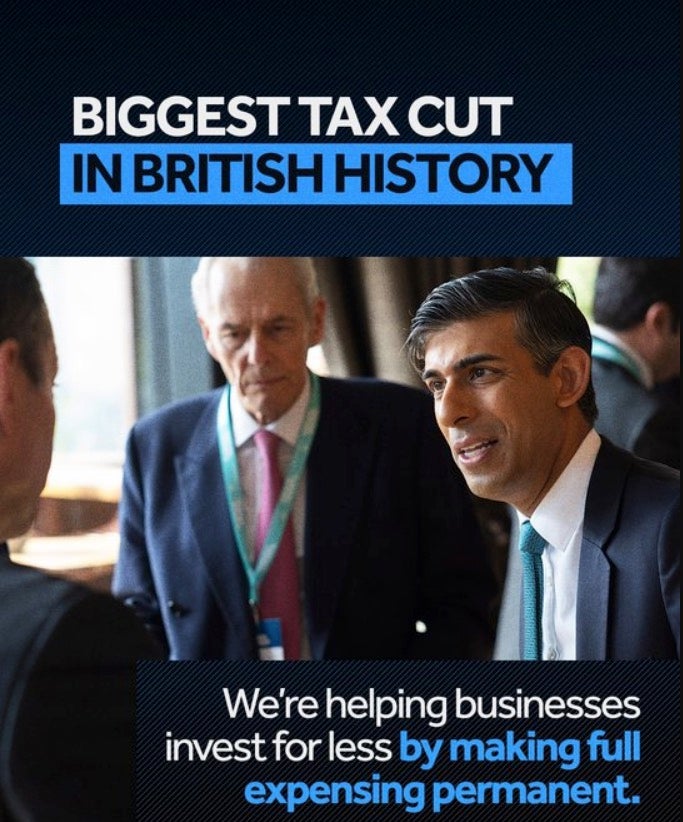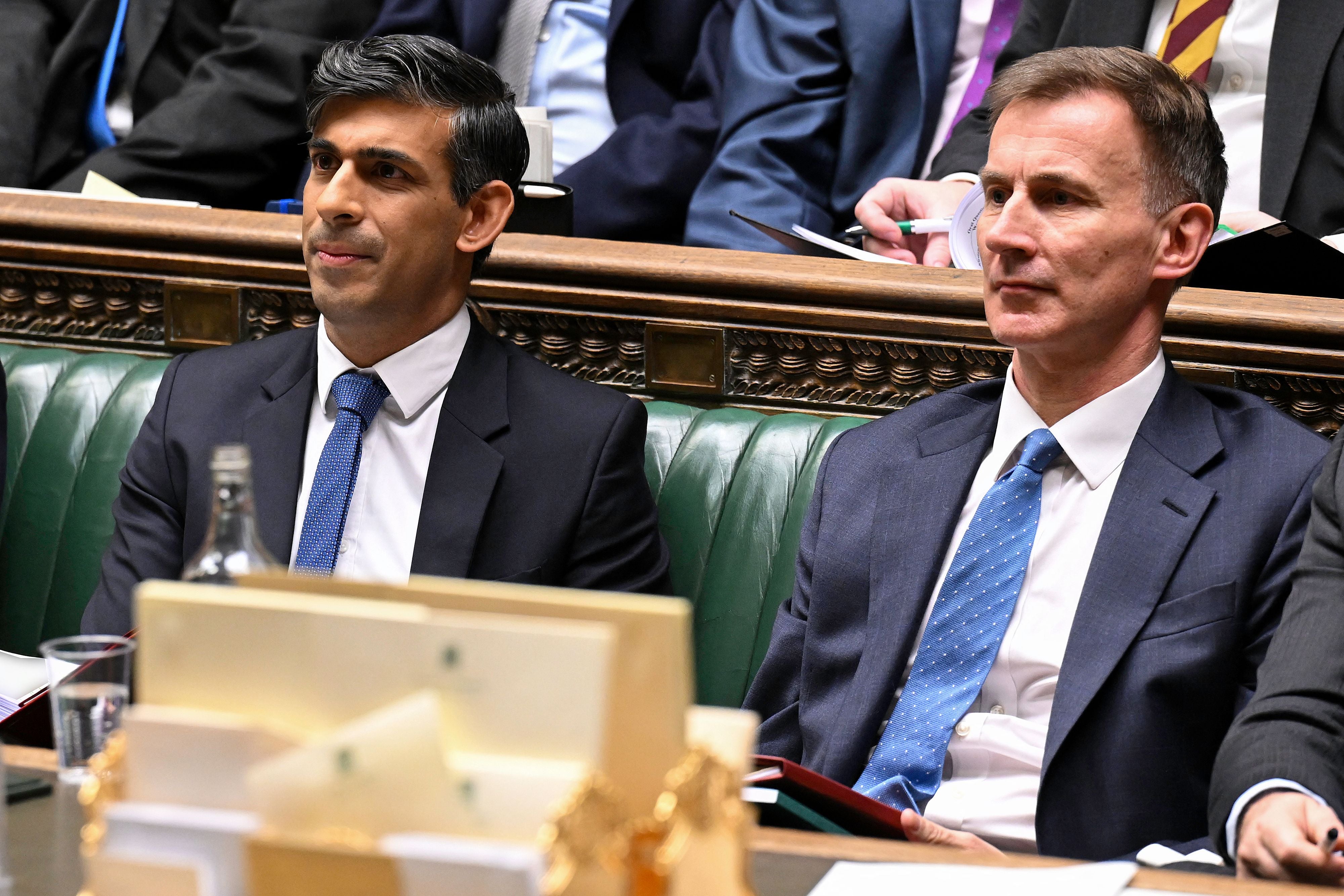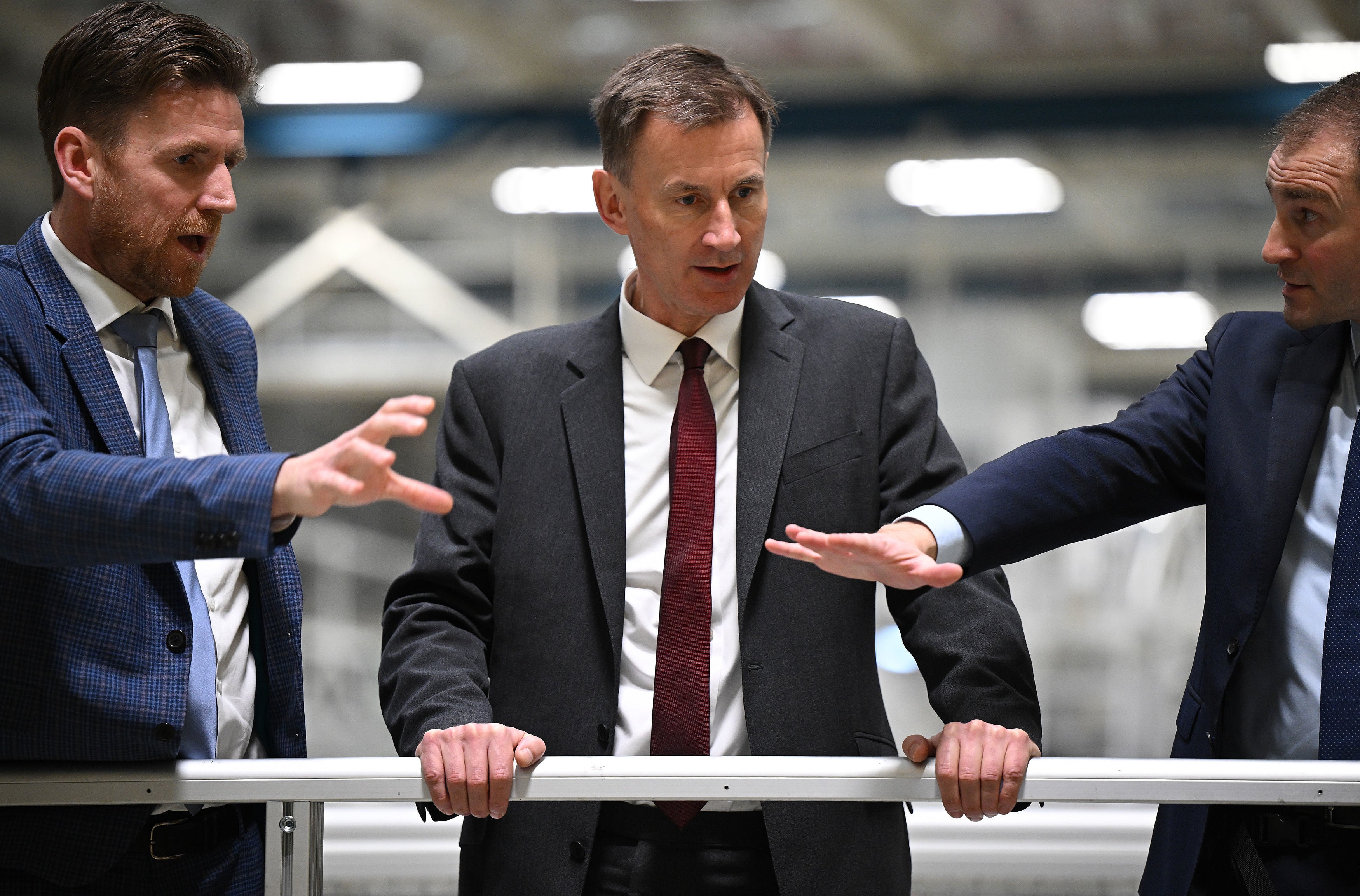Jeremy Hunt denies lying about ‘record tax cuts’ claim
Chancellor speaks out after BBC interviewer tells him Tory advert is ‘fundamentally dishonest’
Jeremy Hunt has denied being “fundamentally dishonest” by claiming his new tax cuts are “the biggest in history”.
The chancellor came under fire after economic experts said the overall taxes are still going up despite the announcement of a two per cent cut in national insurance in Wednesday’s autumn statement.
The Conservative Party sparked fresh controversy by publishing an official advert this morning stating that the tax cuts, including a business tax reduction, are “the biggest ever”.
The poster was slapped with a clarifying “community note” on social media platform X, which clarified the tax burden is on course to reach a post-war high.
Official spending watchdog the Office for Budget Responsibility (OBR) also stressed that taxes are on course to reach the highest level since the Second World War, despite Mr Hunt’s giveaways.
And the chancellor clashed with Nick Robinson, host of BBC Radio 4’s Today programme, after the broadcaster told him the claim was fundamentally dishonest and “downright misleading.”
Mr Hunt said he strongly disagreed and defended his package. He went on to admit that “of course” taxes were going up “so we can pay down our Covid debt”.
The chancellor added: “But yesterday I did make a start in bringing down the tax burden. I’ve never said that we were going to get there all in one go.”
On LBC, Mr Hunt admitted that Wednesday’s tax cuts were just “a step towards bringing down taxes on families who’ve seen their taxes go up”.

Labour’s shadow chancellor Rachel Reeves said the tax cuts do not compensate for frozen tax thresholds pulling more people into paying tax. She told Times Radio “it doesn’t compensate for the fiscal drag”.
But Ms Reeves would not commit to unfreezing the income tax or national insurance thresholds. She declined to “make a commitment on tax without saying where the money is going to come from”.
The Institute for Fiscal Studies (IFS) said Mr Hunt was “taking more from us than it gives back”. The think tank said the national insurance cut had was not quite “offsetting” the “greater than expected fiscal drag”.
IFS findings have revealed that for every £1 the Treasury has taken from taxpayers, less than 25p is coming back in tax cuts.
The group’s analysis shows that Mr Hunt’s tax cuts give back to taxpayers less than £1 for every extra £4 being paid in tax rises since 2021.
IFS economist Carl Emmerson said the latest measures put the UK on course to have “the biggest tax-raising parliament in modern history”. “Taxes are being pushed up as a share of GDP pretty substantially over the current parliament to levels that are record levels,” he added.

The IFS also said Mr Hunt’s £11-a-year “expensing” tax break for big business is not as big as it seems. The think tank pointed to OBR figures which show it will only cost the Treasury £3bn-a-year in the long-run. “It’s not as big a tax reduction as the chancellor made out,” said the IFS’ Isaac Delestre.
The Resolution Foundation savaged Mr Hunt’s autumn statement as a bung to the rich. The think tank said 40 per cent of the gain from tax and benefit measures will go to the richest fifth of the population.
The IFS analysis on the autumn statement’s distributional impact shows Mr Hunt’s moves measures benefit the wealthiest households most. The IPPR also said the richest 20 per cent will get almost half of the money handed out by the chancellor.
The Resolution Foundation says the fall in the value of real household incomes over the course of this parliament will be worth on average £1,900 in real terms – calling it a “disaster for households”.

The think tank’s chief executive Torsten Bell said Mr Hunt’s pre-election “giveaway” offers tax cuts today at the price of “implausible spending cuts tomorrow”. He said the “tax-cutting rhetoric” had “clashed with a tax rising reality”.
Mr Bell added: “This parliament is set to achieve a truly grim new record: the first in which household incomes will be lower at its end than its beginning.”
Former Conservative chancellor George Osborne said Mr Hunt and Rishi Sunak are “opening the door” to a surprise general election in May with their tax giveaway.
A senior government source told Sky News that strategist Isaac Levido will start at CCHQ in January to make sure the party is ready for an election as soon as possible.
Amid speculation about a spring election, another senior source told the broadcaster the plan was to “prepare for November” but be “ready for May”.
But Mr Hunt insisted that it was “silly” to regard the tax cuts as a pre-election giveaway, and said he had not spoken to Mr Sunak about when a general election might be held.
“It’s silly to think about this in terms of the timing of the next election. We’re trying to make the right decisions for long-term growth of the economy,” the chancellor told Sky News.
Mr Hunt also suggested more tax cuts could be on the way at the spring Budget. The chancellor said he was able to “make a start” and hoped he will be able to “reduce the tax burden still further in the future”.
Join our commenting forum
Join thought-provoking conversations, follow other Independent readers and see their replies
Comments



Bookmark popover
Removed from bookmarks